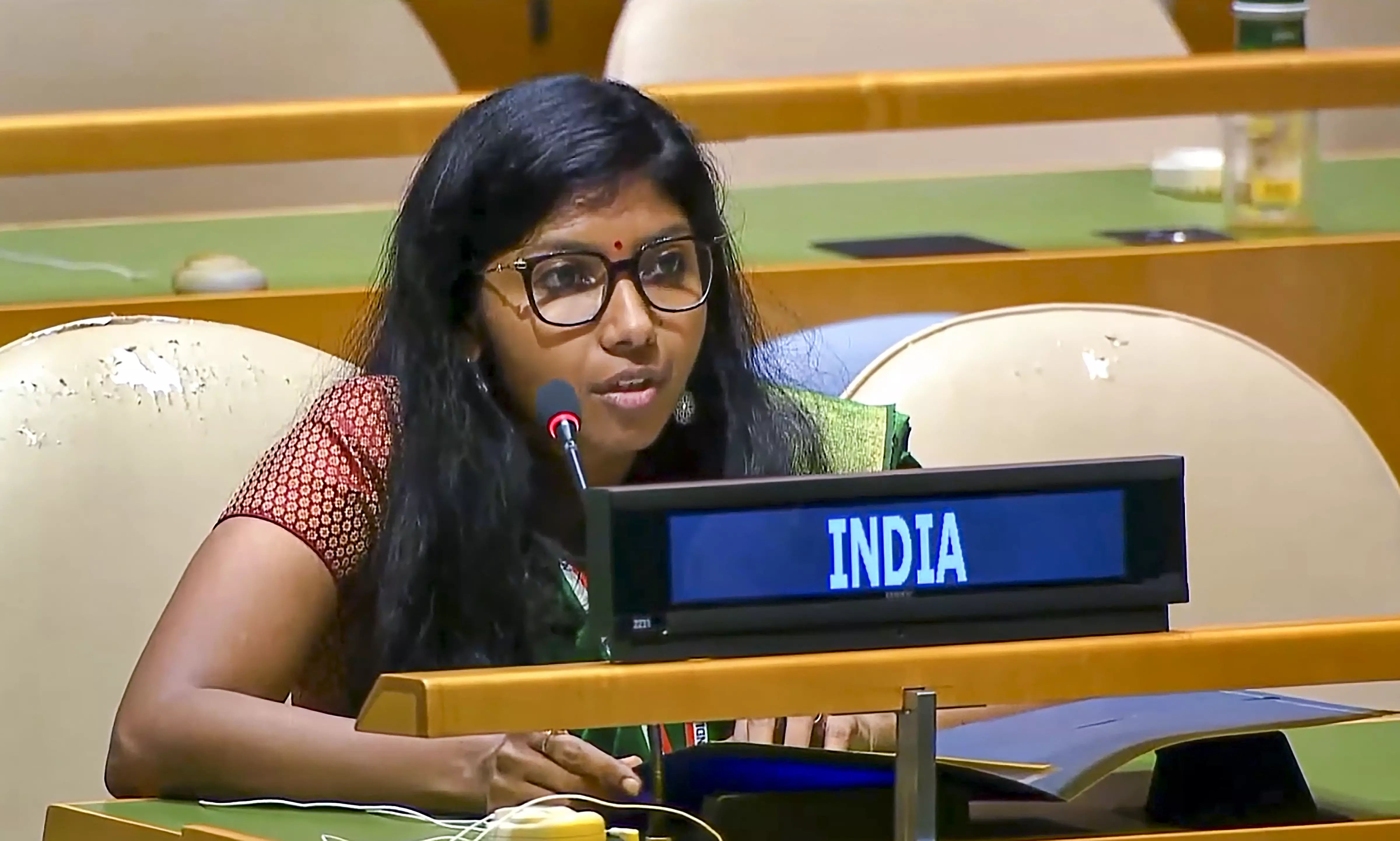
India slams Pak at UNGA, says cross-border terrorism will invite consequences
India stressed that it is even more extraordinary for a country with a history of rigged elections to talk about political choices, that too in a democracy

In a strong retort, India has slammed Pakistan in the UN General Assembly, saying its “fingerprints" are on terrorist incidents across the world and the country should realise that cross-border terrorism against India will “inevitably invite consequences”.
India exercised its Right of Reply in the UN General Assembly on Friday in response to Pakistan Prime Minister Shehbaz Sharif raising the issue of Jammu and Kashmir in his address at the General Debate of the 79th session of the UN General Assembly.
“This Assembly regrettably witnessed a travesty this morning. A country run by the military, with a global reputation for terrorism, narcotics trade and transnational crime has had the audacity to attack the world's largest democracy,” First Secretary in India’s Permanent Mission to the UN Bhavika Mangalanandan said, delivering India’s Right of Reply.
Also read: Pakistan PM Shehbaz Shariff raises Kashmir issue in UNGA address
‘Hypocrisy at its worst’
She asserted that as the world knows, Pakistan has long employed cross-border terrorism as a weapon against its neighbours.
“It has attacked our Parliament, our financial capital Mumbai, marketplaces and pilgrimage routes,” she said, referring to the 2001 Indian Parliament attack and the 26/11 Mumbai terror attacks carried out by Pakistan-based terror groups.
“The list is long. For such a country to speak about violence anywhere is hypocrisy at its worst,” Mangalanandan said.
In his address, Sharif raised the Kashmir issue, as expected, and said that to “secure durable peace”, India should reverse the Abrogation of Article 370 and enter into a dialogue for a “peaceful” resolution of the issue.
He said India has spurned Pakistan’s proposals for a mutual “Strategic Restraint Regime”.
Pak’s ‘fingerprints’ on terror acts
Responding to this reference “to some proposal of strategic restraint”, India asserted that there "can be no compact with terrorism. In fact, Pakistan should realise that cross-border terrorism against India will inevitably invite consequences.”
Reminding the international community that this was a nation that for long hosted Al Qaeda leader Osama bin Laden, Mangalanandan said Pakistan’s “fingerprints are on so many terrorist incidents across the world, whose policies attract the dreads of many societies to make it their home. “Perhaps it should come as no surprise that its prime minister would so speak in this hallowed hall. Yet we must make clear how unacceptable his words are to all of us. We know that Pakistan will seek to counter the truth with more lies. Repetition will change nothing. Our stand is clear and needs no reiteration,” she said.
India stressed that it is even more extraordinary for a country with a history of rigged elections to talk about political choices, that too in a democracy. “The real truth is that Pakistan covets our territory, and in fact, has continuously used terrorism to disrupt elections in Jammu and Kashmir, an inalienable and integral part of India,” the young Indian diplomat said.
Also read: Ready for dialogue with Pakistan if it stops promoting terrorism: Rajnath Singh
India’s assertions ‘baseless’: Pak
She said it is ridiculous that a nation that committed genocide in 1971 and which persecutes its minorities relentlessly even now, “dare speak about intolerances and phobias. The world can see for itself what Pakistan really is.”
A Pakistani diplomat went on to respond to Mangalanandan with a Right of Reply. Describing India's assertions as "baseless and misleading", the Pakistani diplomat said the United Nations Security Council, through numerous resolutions, has unequivocally called for a free, impartial plebiscite to enable the people of Jammu and Kashmir to exercise their inalienable right to self- determination.
Every year, Pakistan’s leaders, on expected lines, make references to Jammu and Kashmir in their UNGA speeches and India fields its young diplomats to deliver hard-hitting retorts to Islamabad’s rants.
(With agency inputs)

